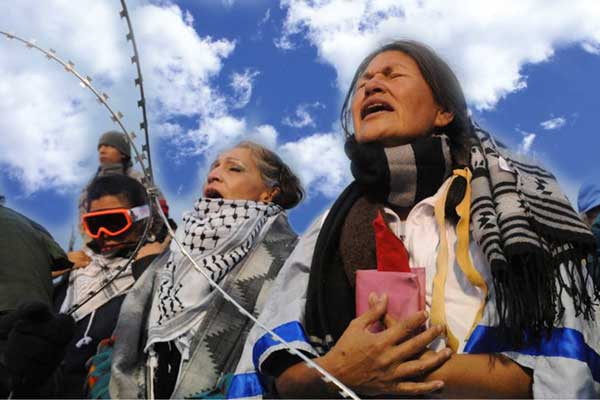“Sharia Law: Coming to a Court House Near You? What Sharia Really Means to American Muslims” is the first empirical study to ask North American Muslims what shari’a means to them in their everyday lives. The study demonstrates that the present “moral panic” over shari’a and its alleged impact on American legal and social culture is wildly overblown. For most American Muslims shari’a represents a private system of morality and identity, primarily focused on marriage and divorce rituals. None of the American Muslims interviewed for this study expected American courts to enforce shari’a. Just like other Americans, they will access the courts for adjudication according to American family law if they cannot make a private agreement (relating to divorce) that meets their needs and values.
Other than religious observance, the practice of shari’a for the vast majority of American Muslims is focused on family matters, primarily marriage and divorce
American courts are sometimes asked to adjudicate disputes that have been originally adjudicated in a Muslim country overseas, and/or refer to Islamic law or shari’a derived principles.
American courts will not recognize either the order of a Muslim court in another country or a private agreement referring to Islamic law or shari’a principles if this violates public policy principles of fairness and due process, does not meet the standard for a legally enforceable agreement (e.g. clarity, consensuality), or involves the court in the interpretation of religious dogma. As a result American courts approve very few cases involving Islamic law (usually marriage contracts, divorce settlements, and occasionally private commercial contracts).
This status quo is widely accepted by American Muslims who, in common with other religious groups, regard their faith-based practices as a private matter and the courts as a place for adjudication according to the principles of American law. The vast majority of respondents in this study saw no incompatibility between their Islamic obligations and their recourse to the civil courts.
The public discourse, however, contains great confusion about the relationship among the courts, the state, and shari’a, a reality that is being exploited for political purposes and expressed in increasing anti-Muslim hostility. Inaccurate and sometimes hateful claims about the way American Muslims understand their religious obligations and cultural norms mask the complex relationship between private religious and cultural choices and universal state protections.
This report considers two potential strategies for ameliorating some of these concerns and enhancing the status quo. Many respondents felt that the courts presently operate with little or no knowledge of Islam or Islamic law and without regard or respect for their beliefs. Without making structural changes, this problem could be addressed by enhanced education for both judges and Muslim religious leaders that deepens their understanding of each system and promotes co-operation between the facilitators of Islamic processes and the courts. There are already signs of mutual influence between the two systems, with many imams incorporating civil law principles into their advice on marriage and divorce agreements, and the courts increasingly asked to consider the lived-experiences of Islamic marriage and divorce as part of the context of a marital dispute. A stronger base of knowledge among judges of Islamic family law traditions would enable the development of jurisprudence that understands and respects these processes.
The present “moral panic” over shari’a and its alleged impact on American legal and social culture is wildly over blown
A second strategy suggested by this research is the promotion – by Muslim leaders and organizations – of Islamic family services that focus on the community’s needs and reflect the values and expertise of its own professionals. A family services marketplace could offer family services both inside and outside the mosques, deploying the skills of a range of professionals, reducing pressure on the imams, and providing broader and more inclusive programs and services. Another far more radical approach often debated in the media is the establishment of a parallel independent Islamic tribunal with jurisdiction over family law. Although widely discussed in scholarly literature and media reporting, this study found virtually no support for such an approach among American Muslims. Assessing and choosing an appropriate policy approach is critical for navigating not only issues related to American Muslims, but all religious groups.
“Shari’a Law Is Coming”: Public Fear and Political Capital
Such claims are commonplace on the Internet, among politicians, and even on highway billboards. Signs of preoccupation with the “threat of Islam” are so omnipresent that we barely register them. It is perhaps inevitable that the terror of 9/11 excited our fear of an unknown “Other.” However during the last ten years, public figures and popular culture have increasingly conflated that terror with ordinary Muslims and their way of life.
Stereotypes of Muslims as violent and opposed to peaceful democracy are increasingly entrenched in American public culture. New conflicts emerge almost every week: the location of a Muslim community center in Manhattan, efforts to amend state law to proscribe the application of shari’a by state courts, Qur’an burning stunts, and general hostility toward women wearing the hijab (a headscarf) or burkah (a full-length gown and head covering). Central to this public fear is the term “shari’a,” (literally “The Way”, or guidelines for appropriate Muslim conduct) which raises deep fears among non-Muslims in the West due to its association with the violent extremist movement that has “stolen” the public understanding of Islam. A recent Center for American Progress report described a systematic campaign by particular organizations and politicians to convince Americans to be afraid of the Muslims who live and work alongside them. This scapegoating builds on the fear that shari’a threatens the country’s social fabric and that American Muslims wish to impose their code of behavior on non-Muslims. The actual content of shari’a in this discourse remains vague, but constantly hints at brutal criminal penalties, intolerance of contemporary life, and misogyny. Some politicians and religious leaders are promoting this factually incorrect and highly divisive message for political capital.
The study described in this Report set out to explore the real meaning of shari’a to ordinary American Muslims by talking to them about how they understood the role of shari’a in their everyday lives. It was conceived following the 2003-05 Ontario, Canada “shari’a debate,” which arose out of a highly publicized appeal by the Islamic Institute for Civil Justice for a formal Islamic tribunal in Ontario to arbitrate family matters. This event sparked widespread public alarm and divisions within the Muslim community. As one journalist commented, the public appeared to believe that “Muslim barbarians [were] knocking on the gates of Ontario.”
The study shows clearly that other than religious observance, the practice of shari’a for the vast majority of American Muslims is focused on family matters, primarily marriage and divorce. For many respondents, following what they understand as the Islamic rules on marriage and divorce represent the most significant aspect of their Muslim obligations aside from formal religious observances such as prayer, fasting, and the celebration of religious festivals. Respondents in this study understood their personal choices of Muslim marriage and divorce processes as separate from the formal legal system, regarding them a private matter relating to religious duty or (equally common) an affirmation of cultural identity. The accounts of hundreds of Muslims and their understanding of the principles of Islamic marriage and divorce demonstrate the mundane normality of their family life, its many similarities to non-Muslim family life, and the groundlessness of the hysteria over “the coming of shari’a law.”
None of the 212 respondents—including many imams, legal scholars, Muslim lawyers and others working in the legal system—suggested that the courts should directly apply Islamic law to Muslims (or non-Muslims). Just three imams (of 41) proposed the creation of a parallel Islamic family tribunal, with the vast majority rejecting this idea in favor of recourse to the civil courts. Many Muslims see the civil courts as “man’s law,” in contrast with shari’a which is “God’s law,” but are equally clear that they are required to obey the law of the land – this was emphasized over and over again, and see no incompatibility. Moreover, the study data shows clearly that a preference for shari’a based approaches to divorce does not prevent Muslims from using the courts to obtain a formal legal divorce (as each divorcee dissolving a legal marriage did) or from using dispute resolution in cases of conflict.
Editor’s Note: This article is the summarized version of her latest research, “Shari’a Law: Coming to a Courthouse Near You? What Sharia Really Means to American Muslims,” which was sponsored by ISPU. The entire report along with its references is available at http://ispu.org.






